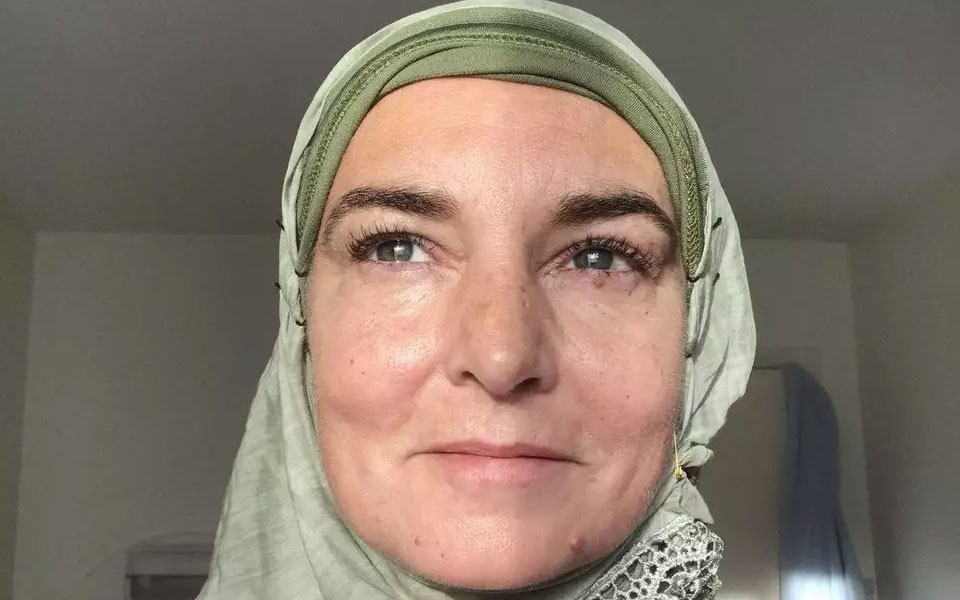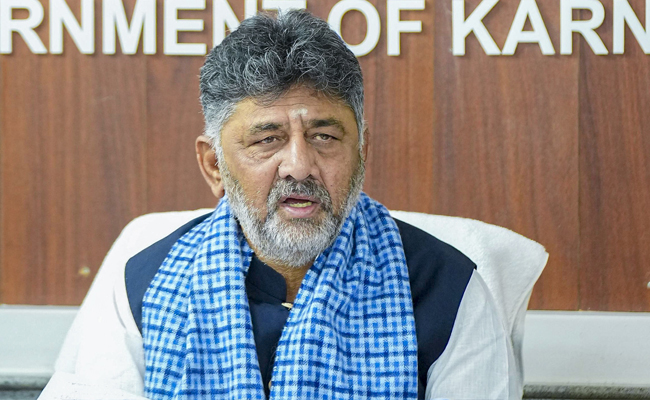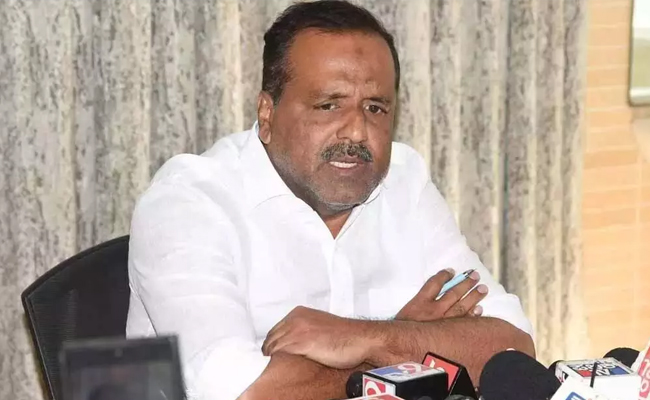Irish singer Sinead O'Connor has announced her conversion to Islam, changing her name to Shuhada' Davitt.
"This is to announce that I am proud to have become a Muslim," she wrote on Twitter on October 19. "This is the natural conclusion of any intelligent theologian's journey. All scripture study leads to Islam. Which makes all other scriptures redundant."
The singer added: "I will be given (another) new name. It will be Shuhada'." She spells her new name, which means "martyrs" in Arabic, with an apostrophe at the end.
Last year, O'Connor changed her name to Magda Davitt, a name she took to be "free of parental curses."
The "Nothing Compares 2 U" singer has replaced her Twitter profile picture with a photo that reads "Wear a hijab just do it" alongside the Nike logo.
Her recent posts have included her singing the Islamic call to prayer, the Azan, and depicted her wearing a hijab.
The 51-year-old has tweeted that she is "very, very happy," and apologized for mispronouncing some Arabic words during her recitation of the Azan.
Although her embrace of Islam attracted criticism and anti-Islamic remarks, it was broadly welcomed by fellow Muslims online.
"Salaam (a greeting that means "peace") and keep up the good work," said Immy Khan. "You have 1.7 billion brothers and sisters now."
On Thursday Davitt tweeted: "Thank you so much to all my Muslim brothers and sisters who have been so kind as to welcome me to Ummah (the Muslim community) today on this page. You can't begin to imagine how much your tenderness means to me."
The singer formally known as O'Connor made headlines in 1992 when she ripped up a picture of Pope John Paul II during an appearance on a US television show.
Later she said in an interview with TIME that she was prompted to do so by the Catholic Church's record of child abuse.
She was then ordained a priest by a bishop of the fringe Catholic Latin Tridentine Church in Lourdes, France, in 1999, in which she was renamed Mother Bernadette Mary, according to the Irish Independent.
The Catholic Church dismissed the ordination of the singer at the time as "bizarre and absurd."
In 2011, she again criticized the Catholic Church over the child sex abuse scandal, in an article for the Sunday Independent.
She dubbed the Vatican "a nest of devils," calling for the creation of an "alternative church'," and lamenting that "Christ is being murdered by liars" in the Vatican.
Pope Francis spoke during his visit to Ireland earlier this year of his shame over the "appalling crimes" of historic child abuse in the Catholic Church and said outrage was justified.
In 2015, the mother of four posted on her Facebook page that she had overdosed in the wake of a custody battle involving her youngest son and his father, Irish musician Donal Lunny. Police later said they had located O'Connor and she was "safe and sound."
The following year, O'Connor was reported missing in Chicago when she did not return from a bike ride, but police found her a day later.
Last year, she posted a tearful video of herself discussing her mental illness, which sparked concern among friends and family.
The footage shows her crying in a motel room and lamenting that her family has abandoned her in the wake of mental health issues.
"People who suffer from mental illness are the most vulnerable people on Earth," O'Connor said. "You've got to take care of us. We're not like everybody."
courtesy : edition.cnn.com
Let the Truth be known. If you read VB and like VB, please be a VB Supporter and Help us deliver the Truth to one and all.
Mumbai (PTI): A Mumbai court on Wednesday granted bail to a businessman, held in a car accident caused by his minor son that led to the death of a person last month, noting that prima facie the father lacked knowledge of his son taking out the vehicle for a drive.
Additional Sessions Judge R M Jadhav allowed his bail on a bond of Rs 50,000 and mainly relied on the statement of a watchman of the building where the businessman resides while granting him relief.
The accident occurred on February 5 near Somaiya College in Mumbai's Ghatkopar area.
As per police, the minor son of the businessman, booked for culpable homicide not amounting to murder, was driving a Kia Seltos when it collided with a scooter, leading to the death of its rider Dhrumil Patel. The deceased's wife Meenal, who was riding pillion, suffered grievous injuries in the crash.
The boy's father was arrested on February 10 and booked under Bharatiya Nyaya Sanhita (BNS) provisions related to rash driving, culpable homicide not amounting to murder, act endangering life and safety of others as well as relevant sections of the Motor Vehicles Act.
The accused, through his advocate Manish Singh, had argued during bail hearing in the court that he was neither present at the accident spot nor driving the vehicle at the relevant time.
He claimed had no knowledge of his son taking the vehicle on the day of the accident and was not responsible for the fatal crash.
Public Prosecutor P B Bankar opposed the bail application, contending the father allowed his son to drive despite knowing the minor did not possess a valid licence.
Advocate Ruben Mascarenhas, appearing for an intervenor (representing the victim's family) , highlighted that the minor operated an Instagram account which featured reckless driving stunts.
The applicant/accused had knowledge of this fact, but still allowed his son to drive the SUV. Hence, prima facie an offence was made out against him, he added.
The advocate submitted that the accused offered Rs 40 lakh to the victim's family to settle the case and claimed that the minor's Instagram history was tampered with.
Additional Sessions Judge Jadhav, after hearing all sides, relied on the statement of a watchman of the businessman's building while granting bail.
It is noted that at 10.15 pm (on the day of accident) the juvenile accused approached the watchman and asked for the car's keys (which were in the latter's possession at that time). The watchman claimed that without questioning the teenager, he handed over the keys to the minor as he happened to be the son of the accused, the court order said.
Later, when the father came down and found that his car was not there in the parking lot, he enquired with the watchman, and came to know the vehicle was taken by his son, it said.
"Prima facie, the material on record thus goes to show that the applicant/accused was not having knowledge of the fact that at the time of incident his son took the vehicle which is required to be noted here," the court held.
The court directed the businessman not to leave Mumbai without its permission and desist from any attempt to influence witnesses in the case.





